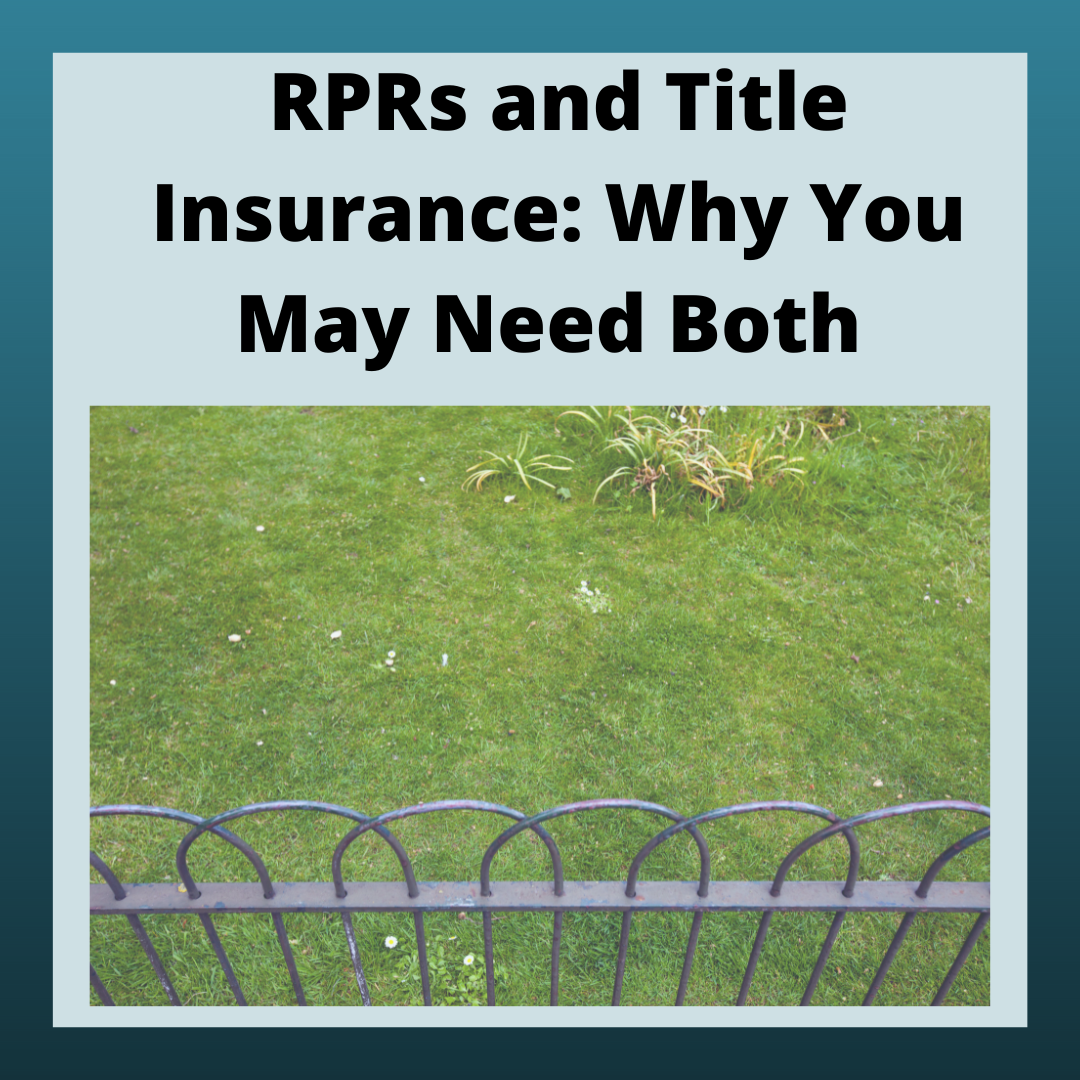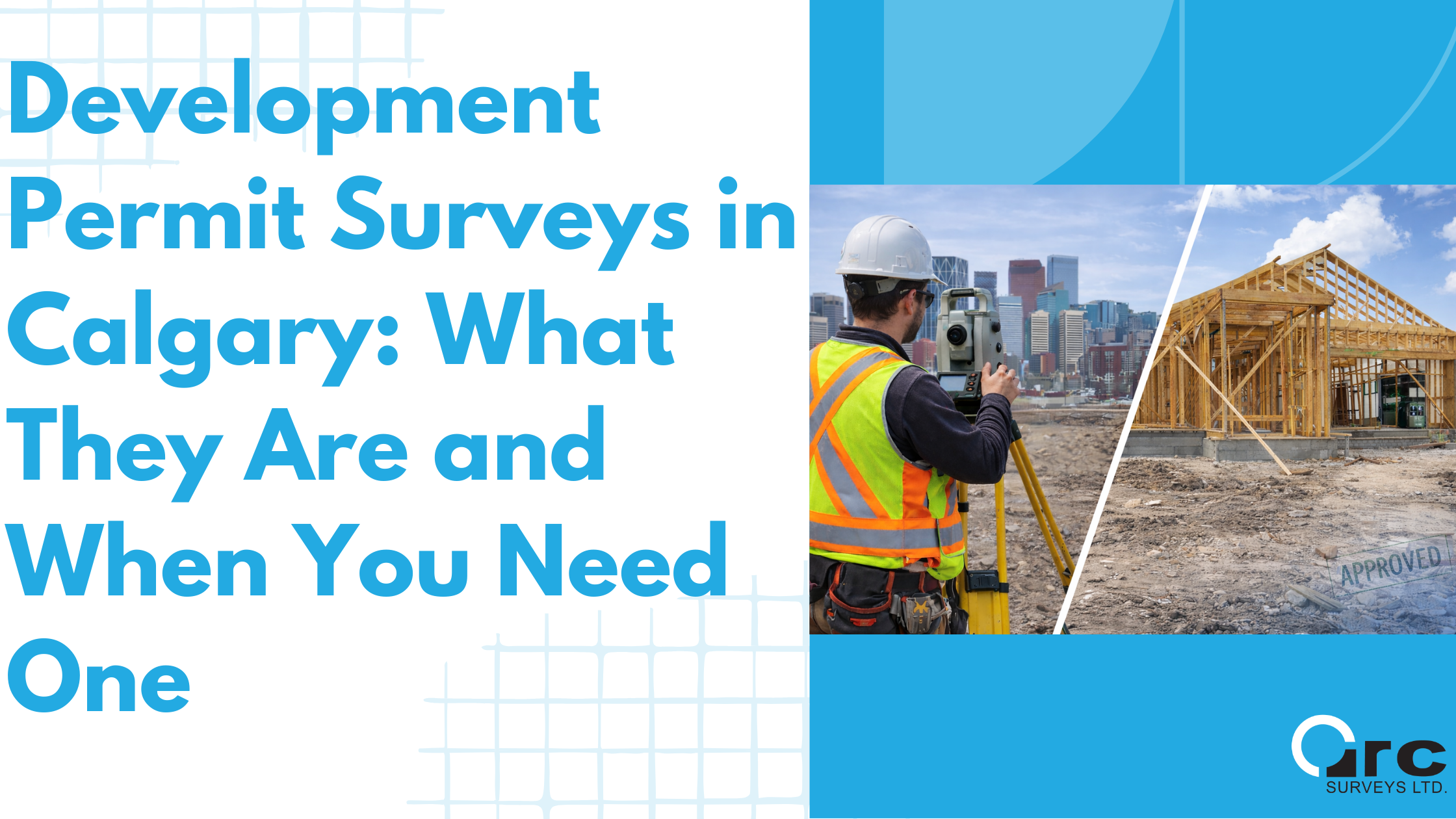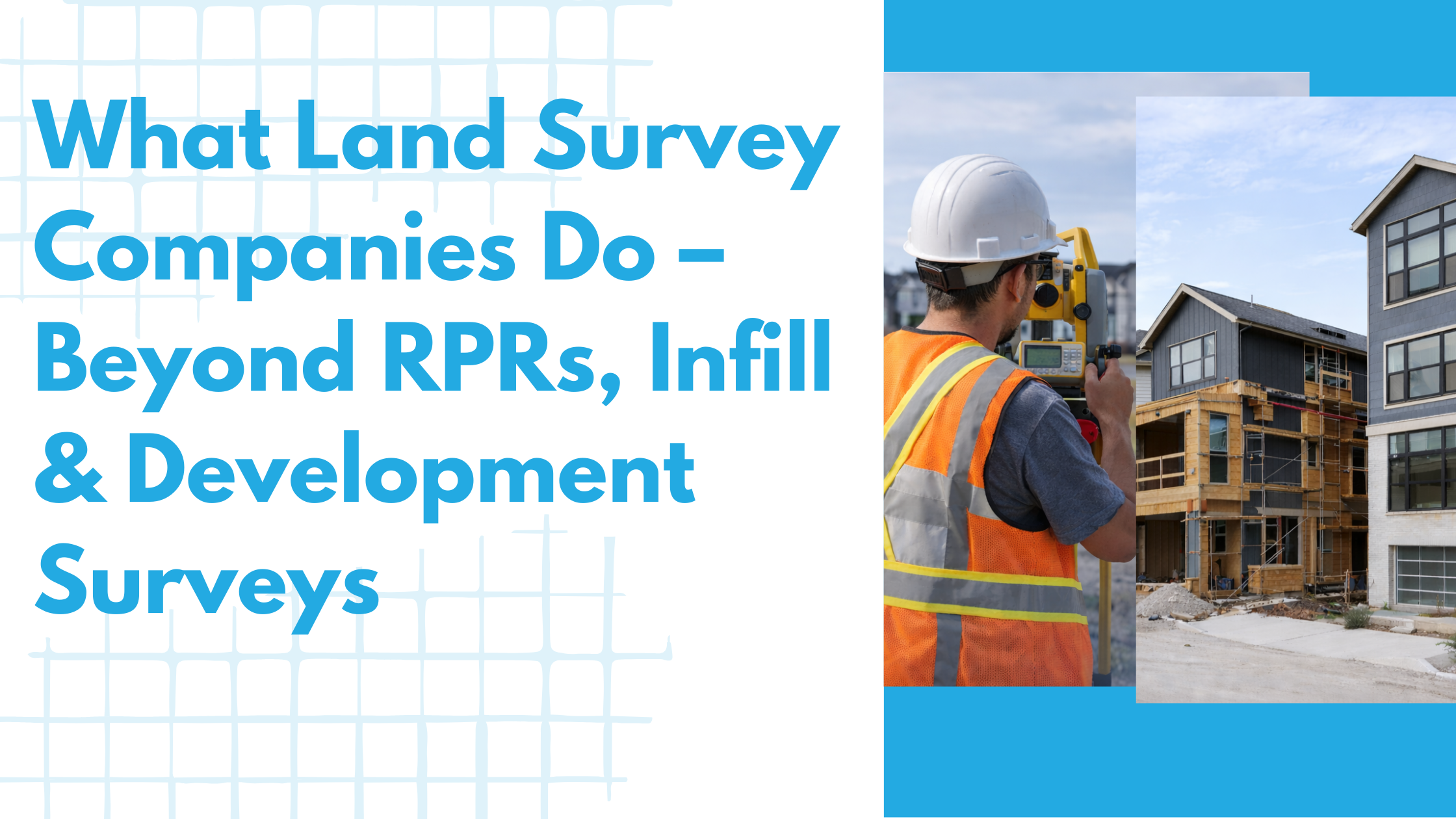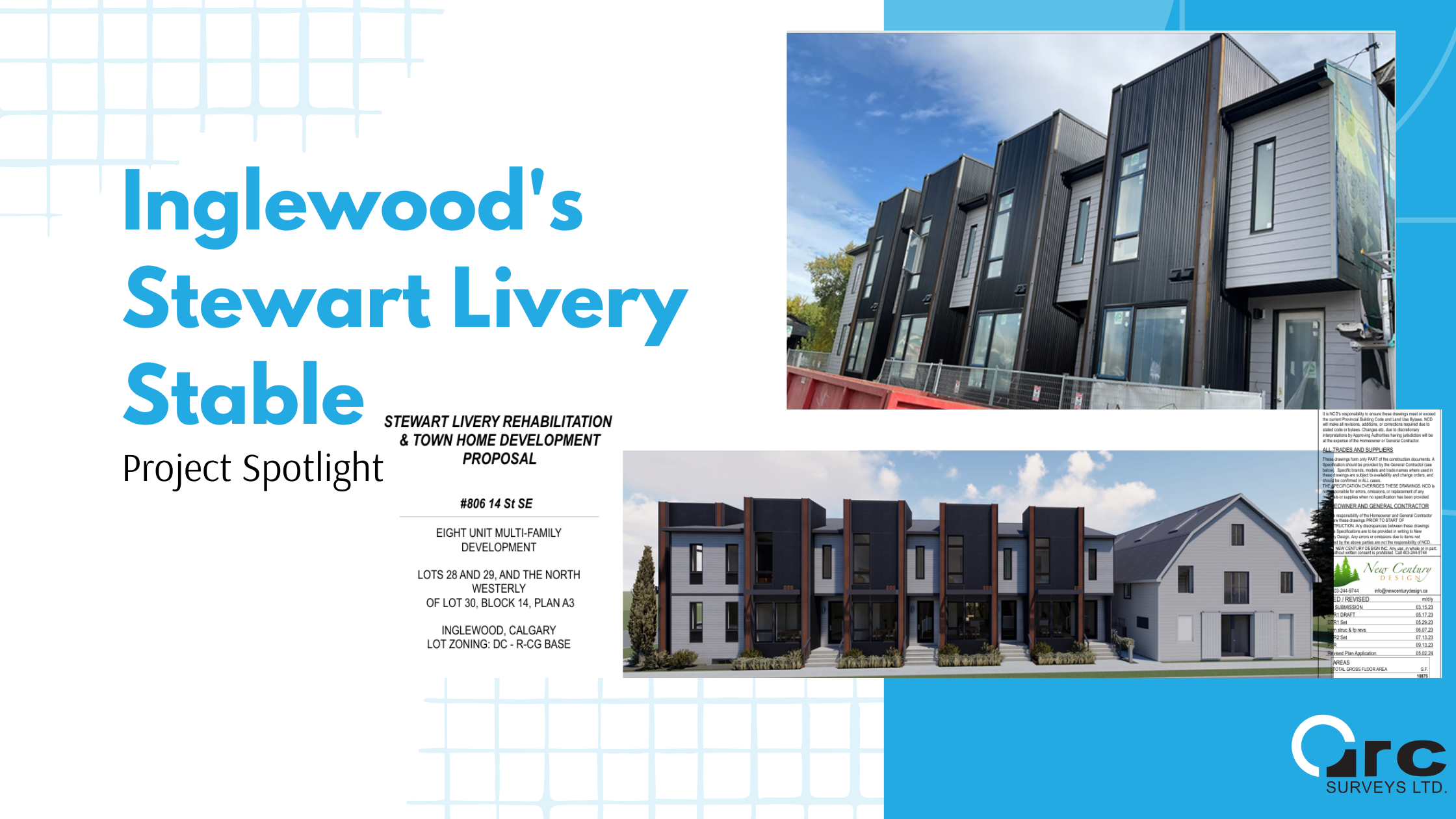In Alberta, a Real Property Report (RPR) prepared by a professional surveying company is required within the Real Estate contract for a seller to complete the sale of a house. Some may suggest that Title Insurance can be used instead of an RPR to save a few hundred dollars and expedite the sale. In this article, we aim to provide helpful insights into Title Insurance and Real Property Reports (RPRs). Please note that we are not an insurance provider and are sharing our perspective based on experience in the real estate industry.
Title Insurance
Title Insurance is liability coverage for the title of the property, encompassing more than just the property lines, buildings, and bylaws. All title insurance policies differ, but many include:
- Tax arrears
- Builder’s liens
- Fraud
- Previously unknown existing violations of municipal bylaw violations, such as a structure without an approved permit, encroachments onto neighbours’ property, easements, or a zoning bylaw violation.
Title Insurance protects you based on the existing property registered with the local municipality – in other words, what you see is what you get. However, Title Insurance may not cover risks such as:
- Any issues on property outside of the registered boundary lines; for example if an outbuilding is located on property outside of the registered boundary.
- Risks previously known to the buyer but not disclosed to the insurer.
- Risks or non-compliance issues that are discovered after the date the policy was signed.
While title insurance offers some protection for the buyer, it does not completely cover every potential concern that could arise in the future.
Example #1: How A Cheap Fence Created an Expensive Problem
Ramesh was selling his house; a bungalow with a small decorative fence on the side of their corner lot next to the sidewalk. Ramesh had built the fence with some low-cost materials well over 10 years ago to keep people’s pets off their lawn at the request of his wife and it had worked quite well. Unbeknownst to them the fence encroached onto the city land, making their property non-compliant. To make the property compliant with the local bylaws Ramesh has two options: remove the fence OR enter into an encroachment agreement to comply with local laws.
Ramesh already signed the real estate contract requiring him to maintain the property “as is”, meaning he cannot make any changes to the property after the contract is signed without consent from the buyer. Unfortunately, if the buyer refuses to have this small decorative fence removed, it could cost Remesh several thousand dollars to obtain an Encroachment Agreement and receive compliance from the city. If Remesh had ordered a RPR and discovered the fence encroachment before listing the home, signing the title insurance policy, or sale contract the Ramesh could have removed the fence in 15 minutes without any cost or change to the property value.
If a cheap, decorative fence can cause you a headache, what about larger items like a driveway, garage, or fence?
Some structures require permits while many ground level improvements don’t – but many times, these issues will not be known until a RPR is completed. If a structure encroaches onto a neighboring property, it becomes a personal dispute, potentially costing the homeowner time and money to remove or rebuild it.
Example #2: Bad Boundaries, Bigger Lawsuit: A $60K Lesson
In 2019 Dean and Mary were sold their acreage in Okotoks, a 5 acre parcel with a main dwelling, barn, and a fence outlining the property boundaries – or so they thought. In 1984 when their children were small Dean constructed a fence around their yard based on a property sketch from The County of Okotoks he had from the original purchase instead of ordering an RPR from a certified Alberta Land Surveyor. When they sold their house they waived the requirement for the RPR and the buyer agreed.
The new buyer obtained an RPR in April 2021, which showed the fence Dean had built is encroaching onto the neighbouring lot. Today Dean received an email from a lawyer representing the buyers claiming that the encroachment is a misrepresentation and are suing Dean for $60,000 in damages. Although Dean purchased Title Insurance before selling the property his policy does not cover a claim of misrepresentation and Dean is now responsible for hiring a lawyer and either going to litigation or settling out of court.
Some may suggest that if you are tearing down the buildings to re-develop the property that an RPR isn’t required when in fact it’s something every real estate investor and developer should order before considering a purchase.
Example #3: An RPR Saved This Developer from a Million Dollar Disaster
Ivan was a real estate developer who had his eye on a property for re-development; the house was ready to be torn down, and he wanted to build a new home with basement suite in the popular suburb to sell at a profit. The seller was willing to agree to omit the RPR requirement to expedite the process so he could get started right away. He was preparing his financials when his bank when he learned that an RPR would be required to secure the financing. He was prepared to move forward with the purchase until he got back the RPR he ordered and realized the purchase would be a costly mistake.
Unbeknownst to the owners, the property line was not where they thought it was – and it started all the way down the block. Every property on the block was measured incorrectly and he would be unable to build the property he had envisioned without serious legal complications resulting from the property boundary mistake.
Conclusion
While Title Insurance covers a lot of potential liability, it may not provide the peace of mind that an RPR does. Whether you are selling a house, buying a house, or developing a property, an RPR provides you with all the information you need to know about the legal status of your property boundaries and buildings with the city bylaws.
When it comes to deciding whether to get Title Insurance or RPR, the answer is clear – get both. The minimal expense of purchasing both for under $1000 will provide you with the maximum protection.
You can also perform a quick check on your property prior to ordering an RPR to discuss any concerns regarding property boundaries, city encroachments, or utility right of ways. We can also help you determine if an improvement to the property like a patio, deck, or outbuilding requires a permit to be compliant with the local bylaws. Send us an email or give us a call and we can provide you with assistance assessing whether you need an updated RPR or should consider a new property survey.





